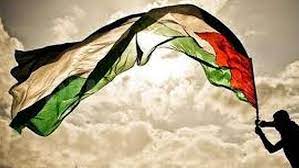Solidarity with Palestine
News from Cuba | Monday, 29 January 2024

CSC Campaigns Officer Tariq Anderson looks at the political and practical support that Cuba has offered Palestine
Revolutionary Cuba has always been unwavering in its support for the Palestinian struggle, and since last October Cuban leaders, including President Miguel Díaz-Canel and Foreign Minister Bruno Rodríguez Parilla, have been forthright in their condemnation of Israel’s genocide in Gaza.
In an impassioned message recorded on 29 October, Díaz-Canel spoke on behalf of the Cuban people and put recent events into the wider historical context:
“We do not accept certain selective indignation that seeks to ignore the seriousness of the genocide that is perpetrated today against the Palestinians, presenting the Israeli side as the victim and ignoring 75 years of attacks, occupation, abuse and exclusion. Nothing can justify what Israel’s army is doing in Gaza.”
Following an attack on the Jabalia refugee camp in northern Gaza on 1 November, which killed scores of civilians, Rodríguez Parilla laid bare the reality of the situation. “Israel commits war crimes in Gaza, with total impunity thanks to the complicity of the US,” he posted on X (formerly known as Twitter). Díaz-Canel took to X on 26 December to ask, “How long will there be impunity, how long will there be freedom to murder?” Cuba, he said, “will never be among the indifferent.”
Cuba’s support for the Palestinians over the past few months, however, has gone beyond public statements. The Latin American School of Medicine (ELAM) in Havana teaches students from all over the world, in particular students from the Global South, many of whom are granted scholarships.
ELAM currently hosts around 250 Palestinian students, including Razan Maleh from Ramallah, in the West Bank. “Cuba is giving many scholarships to Palestinians and that allows Palestine to, in the future, have a group of doctors who will go to work and help the people of the homeland,” she told the news outlet Belly of the Beast.
In a gesture of solidarity, Díaz-Canel invited 144 of these young Palestinian students to the Palace of the Revolution for a meeting on 17 November. 53 of the 144 Palestinians in attendance were from the Gaza Strip, including 22-year-old Maria. She spoke of her experiences in previous wars in Gaza, and expressed her gratitude for the solidarity that Cuba had shown Palestine.
At the meeting, Díaz-Canel was presented with a black and white keffiyeh by the students, an important symbol of Palestinian resistance and their struggle for self-determination. “We are going to take care of you, we are going to give you all of our attention, we are going to accompany you in your careers, because you are the future of Palestine,” the Cuban president told his guests.
On the same day, and in a rare move given its symbolic importance, Havana’s iconic monument to José Martí in Plaza de la Revolución was illuminated with the flags of both nations in a striking visual display of solidarity.
A week later, on 24 November, around 100,000 people marched through the capital, calling for an immediate ceasefire, an end to the occupation and justice for the Palestinians.
Chants of “Genocidio basta ya, Palestina vencera!” (Stop the genocide, Palestine will win!) and “Que viva la lucha del Pueblo Palestino!” (Long live the fight of the Palestinian people!) were led by Palestinians themselves as they marched down the Malecón.
“Even though we’re very far away, in a different world here in Cuba, we will always be united to oppose what’s happening in Palestine,” said Salim Chahine, a Palestinian student at ELAM.
“We’re marching to defend our rights and to support Palestine,” Malak Balout, another Palestinian student, explained. Palestinians celebrated the strength of the ties between Cuba and Palestine on the march, with Balout saying “we’re so grateful for what Cuba is doing for us and for our people.”
Ghassan Fatayet told reporters: “Once again we take to the streets of Havana. We raise our voices alongside our Cuban brothers.”
In stark contrast to the approach of other world leaders, Díaz-Canel – sporting his black and white keffiyeh – was at the front of the march, leading the demonstrators past the United States’ embassy, joined by Rodríguez Parilla, Prime Minister Manuel Marrero and other Cuban leaders.
Díaz-Canel is perhaps the only head of state in the world to march on the streets in support of Palestine.
Cuba’s unequivocal support for Palestine serves as a reminder of the importance of international solidarity. As Razan Maleh told Belly of the Beast, “the Palestinian cause is not only for Palestinians, it’s the cause of all oppressed peoples of the world.”






